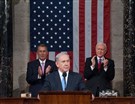Just about ninety minutes ago Mahmoud Abbas, president of the Palestine Liberation Organization and the Palestinian Authority, posed the perennial Palestinian question to the delegations assembled in New York: Is there one people too many or one state too few?
For the past two decades, bilateral negotiations have quarantined a matter of broad international concern and consequence. Under the veneer of the “peace process,” Israel has consolidated its occupation and escalated its colonial settlement expansion. The forced population-transfer of Palestinian civilians has continued unabated under the weight of the Israeli imperative of creating facts on the ground. Rather than challenge those policies on behalf of the Palestinians it purports to represent, for the past twenty years the Palestinian leadership has succumbed to U.S. pressure. The PA has muted its public protest and international advocacy against Israeli policies in exchange for the promise of a better negotiation position.
Abbas`s speech today signaled that that policy has proven ineffective and must come to end. It was an attempt to move the conflict out of the dark and hushed corners of bilateralism to the stage of multilateral strategies.
Several days ago President Obama gave as clear a response as any American president has ever provided to this question: The Palestinians will remain an occupied, dispossessed and stateless people unless and until Israel chooses otherwise, and the United States will use all of its resources, and any means necessary, at any cost, to ensure that Israel remains in perennial control of the Palestinian people.
Today, the General Assembly, with its repeated applause and standing ovations during Abbas`s address, gave a very different answer to this question. More importantly, it gave the definitive lie to the proposition that Washington`s views on the Israeli-Palestinian conflict are in any way representative of the international community. For today it was the international community itself, in the most visible manner possible, expressing its views. These comprise a vision of Israeli-Palestinian peace on the basis of Palestinian statehood and self-determination that is for all intents and purposes diametrically opposite to the agenda emanating from Washington. Indeed, the international community demonstrated that it claps and cheers to a rather different tune than does the U.S. Congress.
The Palestinian priority must now be to work systematically and ceaselessly towards the internationalisation of the Palestine Question, in all of its dimensions, and end the American monopoly on Middle East diplomacy once and for all. Because the American role is hopelessly compromised to the point of being politically as well as morally bankrupt, and its record one of systematic failure.
For Palestinians, this is the only meaningful path towards self-determination.
Words of course do not amount to deeds and it is yet to be seen whether the Palestinian leadership intends to pursue the internationalization of the Palestinian struggle beyond the proceedings of the General Assembly`s 66th Session. If so, next steps will include, inclusion of the Palestinian national body in representative elections, meaningful reconciliation with Hamas, and a diplomatic marathon intended to encourage compliance with the ICJ`s 2004 Advisory Opinion on the Wall and making actionable the recommendations enumerated by the Fact-Finding Mission to Gaza.
In the meantime, in drawing on the words of Mahmoud Darwish and the legacy of the PLO’s liberation struggle, Abbas’ words of “Enough, Enough, Enough” reminded us of a pre-Oslo moment.
On Netanyahu’s Speech
Israeli Prime Minister Binyamin Netanyahu`s speech demonstrated precisely why Palestinians need to internationalize their cause and definitively break away from bilateral negotiations under unilateral American custodianship.
Consider Netanyahu`s call for negotiations without pre-conditions. In practice this means not a single right accorded to the Palestinian people by the United Nations and international law forms a relevant basis for the resolution of the conflict. At the same time Israel -- several decades after negotiations have commenced -- is free to raise entirely new and outrageous demands, in this case recognition of Israel as a Jewish state, as pre-requisites for agreement. If the only thing he has to offer in 2011 is negotiations without preconditions, we can reasonably assume his successor will be making a similar plea in 3050.
Rather than endorse or even acknowledge the will of the international community as repeatedly proclaimed in United Nations resolutions, Netanyahu attacked the international consensus in a pitiful display of demagoguery: The Gaza Strip enjoys total freedom, settlements are so irrelevant they form not even a nuisance, and Palestine is and has always been the exclusive preserve of his people. And to prove it all, he found a ring with his name on it. As might be expected, those who even slightly demur from this patently nonsensical narrative were denounced as Nazis determined to exterminate the Jews.
Once again proclaiming the theory that attempts to delegitimize either Israel or its occupation form the leading threat to international peace and security, Netanyahu lost no opportunity to delegitimize the Palestinians, their rights and aspirations, and did so with a characteristic display of vulgarity. Netanyahu lecturing and hectoring about Israel`s right to forever control the destiny of the Palestinian people admittedly produces ecstatic responses in the U.S. Congress. As we saw today, however, the international community is much less impressed by such rhetoric.
![[Mahmoud Abbas at the U.N. Image from unknown archive]](https://kms.jadaliyya.com/Images/357x383xo/AbbasatUN.jpg)










